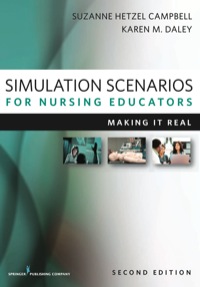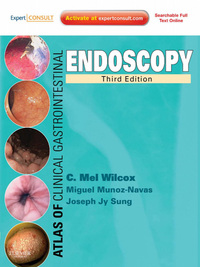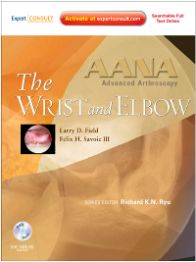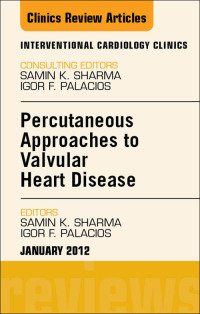
Product Title: Simulation Scenarios for Nursing Educators, Second Edition: Making It Real (Campbell, Simulation Scenarios for Nursing Educators)
Format:
PDF, File Size = 6.40 MB
Overview (Details, Topics and Speakers):
[]
“The passion, caring, and inspiration of the authors are reflected and demonstrated in each and every chapter Compiling all of the authors’ lessons learned, teaching-learning strategies, and in-depth research and exploration of their topics, this book is an excellent guide for nursing faculty just getting started with simulations or is validation for faculty who are already using this pedagogy.”
From the Foreword by Pamela R. Jeffries, PhD, RN, FAAN, ANEF
Professor, Associate Dean for Academic Affairs
Johns Hopkins University School of Nursing
This second edition of an acclaimed book for nurse educators provides a practical, step-by-step guide to designing and developing simulation scenarios and integrating them into the nursing curriculum. Based on extensive discussion with contributing authors and new faculty, the text has been updated to include changes in simulation pedagogy since the first edition was published in 2008, and thoroughly reorganized to facilitate greater ease-of-use. Outstanding features include scenarios easily adaptable to the instructor’s own lab, and a new section on graduate nursing education and interdisciplinary clinical scenarios. Scenarios are ordered according to their complexity for ease of access.
The authors provide concrete information about the use of simulation in a variety of programs, courses, and schools, and describe how nursing faculty have mastered the challenge of integrating simulation into their curricula, from fundamental nursing arenas to more complex levels of care. Chapters discuss how simulation can be used with such diverse populations as medical-surgical, geriatric, pediatric, trauma, obstetric, and home care. The book offers scenario-running instructions, as well as recommendations on developing faculty, integrating point-of-care decision-making tools and necessary equipment, how to set up a lab (including static to high-fidelity manikins), and much more. Scenarios explore key themes in nursing, from ethics, spirituality and palliative care, to communication and cultural diversity. A template for creating scenarios spans the text and includes student preparation materials, forms, and checklists.
This updated edition includes:
- Scenarios easily adaptable to an instructor’s own lab
- A new section on graduate nursing education and interdisciplinary clinical scenarios
- New interdisciplinary, interprofessional, and community-based scenarios
- Expansive chapter templates
- Focus on cultural sensitivity, health literacy, and research methods
- Information on certification issues and integrating e-records in simulation
Editorial Reviews
From the Back Cover
Professor, Associate Dean for Academic Affairs
Johns Hopkins University School of NursingThis second edition of an acclaimed book for nurse educators provides a practical, step-by-step guide to designing and developing simulation scenarios and integrating them into the nursing curriculum. Based on extensive discussion with contributing authors and new faculty, the text has been updated to include changes in simulation pedagogy since the first edition was published in 2008, and thoroughly reorganized to facilitate greater ease-of-use. Outstanding features include scenarios easily adaptable to the instructor?s own lab, and a new section on graduate nursing education and interdisciplinary clinical scenarios. Scenarios are ordered according to their complexity for ease of access.The authors provide concrete information about the use of simulation in a variety of programs, courses, and schools, and describe how nursing faculty have mastered the challenge of integrating simulation into their curricula, from fundamental nursing arenas to more complex levels of care. Chapters discuss how simulation can be used with such diverse populations as medical-surgical, geriatric, pediatric, trauma, obstetric, and home care. The book offers scenario-running instructions, as well as recommendations on developing faculty, integrating point-of-care decision-making tools and necessary equipment, how to set up a lab (including static to high-fidelity manikins), and much more. Scenarios explore key themes in nursing, from ethics, spirituality and palliative care, to communication and cultural diversity. A template for creating scenarios spans the text and includes student preparation materials, forms, and checklists.
This updated edition includes:
- Scenarios easily adaptable to an instructor?s own lab
- A new section on graduate nursing education and interdisciplinary clinical scenarios
- New interdisciplinary, interprofessional, and community-based scenarios
- Expansive chapter templates
- Focus on cultural sensitivity, health literacy, and research methods
- Information on certification issues and integrating e-records in simulation
”
About the Author
Suzanne Campbell graduated with her BS and MS in Nursing from the University of Connecticut and her PhD in Nursing from the University of Rhode Island. She obtained her post-master’s certificate as a Women’s Health Nurse Practitioner from Boston College. Presently, she is Associate Professor and Director of the University of British Columbia School of Nursing in Vancouver, BC. Dr. Campbell is committed to the education of all health care professionals, recognizing nursing’s role in an interprofessional setting and the continued need to develop knowledge, partnerships, and collaboration for the provision of excellent patient-centered health care.
Karen Daley, PhD, RN, the Dean of the College of Health Professions at Davenport University in Grand Rapids, Michigan. She attended Villanova University and received her Bachelor in Nursing. She received her Master’s in Nursing from Troy State University followed by her PhD in Nursing from Rutgers University. In her role as Dean, she has overseen the construction of three state of the art simulation labs as well as the integration of simulation throughout the Nursing Department and all health majors. Currently she is working on the implementation of an interprofessional education initiative throughout the college to bring together all health departments, including Nursing, Allied Health and Health Information Technology, through the use of simulation.
Product Details
- Series: Campbell, Simulation Scenarios for Nursing Educators
- Paperback: 576 pages
- Publisher: Springer Publishing Company; 2 edition (December 14, 2012)
- Language: English
- ISBN-10: 0826193269
- ISBN-13: 978-0826193261
- ISBN-13: 9780826193261
- eText ISBN: 9780826193278
Delivery Method
the Simulation Scenarios for Nursing Educators, Second Edition: Making It Real (Campbell, Simulation Scenarios for Nursing Educators) course/book will be provided for customer as download link. download link has NO Expiry and can be used anytime.
Contact Us
contact us to our email at [email protected] or fill in the form below:





Reviews
There are no reviews yet.